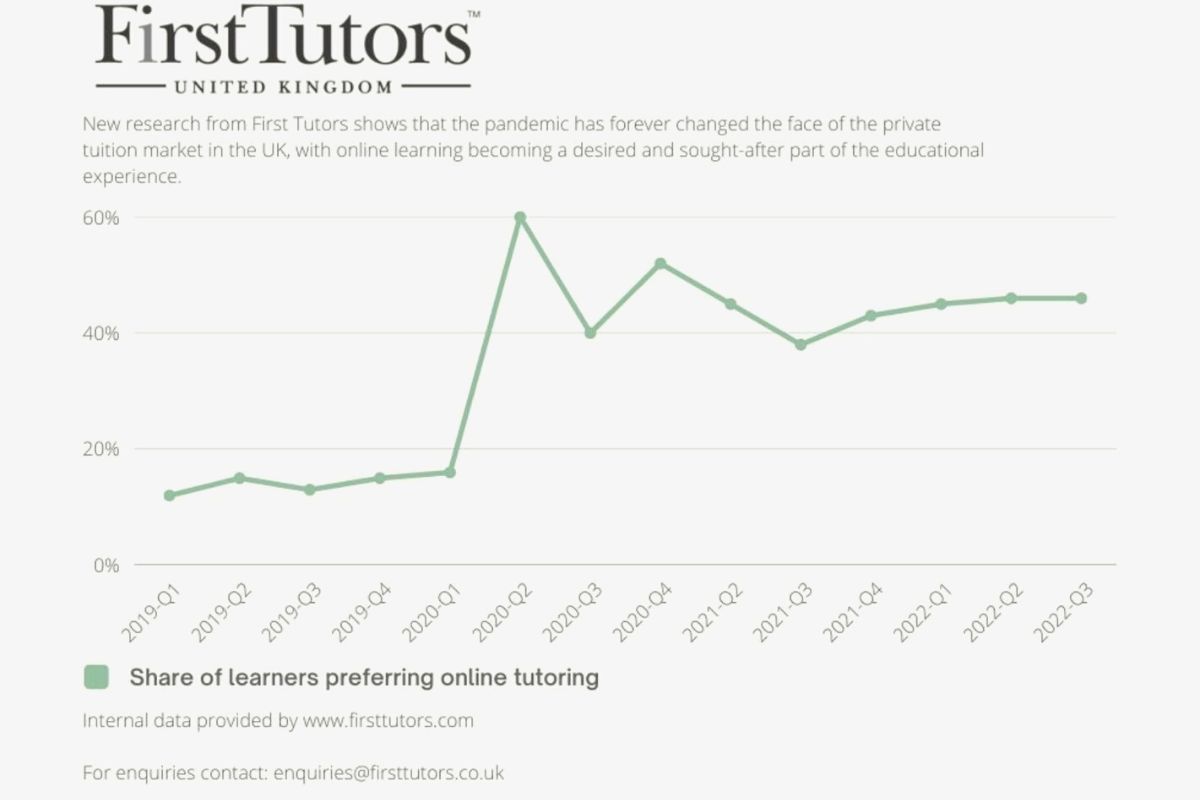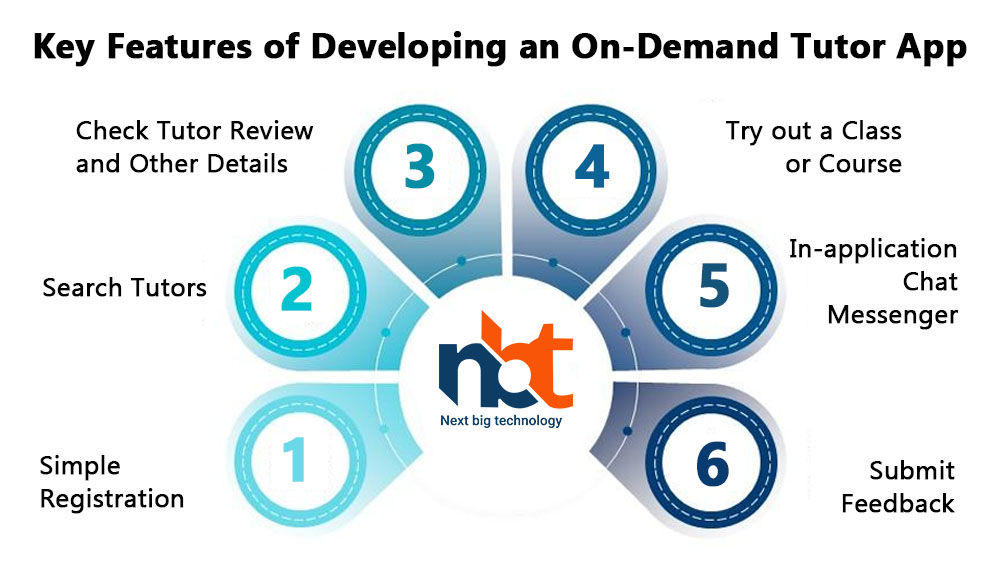In today’s world, the demand for tutors has skyrocketed, fueled by a variety of factors such as the aftermath of remote learning, increasing competition for college admissions, and the growing need for specialized knowledge. Whether you’re a parent seeking help for your child, a student looking for support in a challenging subject, or an aspiring tutor eager to enter the field, understanding which tutors are most in demand is crucial.
Factors Driving the Demand for Tutors
1. Educational Challenges and Gaps
Recent years have brought significant disruptions to traditional education. Remote learning, for instance, left many students struggling to grasp fundamental concepts, particularly in math and science. According to a study by McKinsey & Company, students in the U.S. were, on average, five months behind in mathematics and four months behind in reading by the end of the pandemic. This has created an urgent need for tutors to help bridge these gaps.
Parents and schools alike are turning to tutors to ensure students catch up on lost learning and build strong academic foundations. The emphasis on personalized education—something that schools often cannot provide—has further fueled this trend.
2. Technology and Online Tutoring
Technology has revolutionized tutoring by making it more accessible and flexible. Online tutoring platforms like Khan Academy, Chegg, and Wyzant have seen a surge in popularity, enabling students to connect with experts from around the globe. Online tutoring trends are not just about convenience—they also allow tutors to specialize in niche subjects and reach a larger audience.
The rise of Artificial Intelligence and educational apps has also created opportunities for tutors to enhance their offerings, making their services even more valuable. For example, tutors using interactive tools like virtual whiteboards or adaptive learning apps are in higher demand because they provide engaging, efficient learning experiences.
3. Increased Competition for College Admissions
The race to secure spots in top colleges and universities is fiercer than ever. Parents and students are investing heavily in test preparation tutors who specialize in exams like the SAT, ACT, GRE, and GMAT. Additionally, high school students are turning to tutors for help with Advanced Placement (AP) or International Baccalaureate (IB) courses to gain an edge in college applications.
In a highly competitive environment, tutors who can tailor their teaching to meet the specific needs of college-bound students—such as building strong personal statements or improving test scores—are consistently sought after.
4. Globalization and Language Learning
The demand for bilingual and multilingual tutors has surged, particularly in regions with high immigration or global business ties. English as a Second Language (ESL) tutors are especially in demand in countries like China, South Korea, and parts of Europe. Conversely, in the U.S. and other English-speaking countries, tutors for languages like Spanish, French, Mandarin, and German are highly sought after.
This trend highlights the global nature of education today, where learning additional languages is not just a skill but a necessity for career and academic success.
5. Specialized Learning Needs
Students with learning differences such as ADHD, autism, or dyslexia require specialized instruction tailored to their unique challenges. Tutors who are trained to work with these students—often holding certifications like Orton-Gillingham for dyslexia or experience with individualized education programs (IEPs)—are particularly in demand. This niche requires a combination of subject expertise, patience, and specialized training.
- The demand for tutors has been shaped by a mix of educational gaps, technological advancements, and societal shifts.
- Areas like test preparation, online tutoring, language learning, and specialized education needs represent some of the fastest-growing sectors in the tutoring industry.

Most In-Demand Tutoring Subjects
1. Academic Subjects
The core academic subjects—math, science, English, and history—remain the foundation of tutoring demand. However, some subjects consistently outpace others due to their perceived difficulty and importance.
Mathematics
Math is often regarded as one of the most challenging subjects for students, and it’s consistently at the top of the list for tutoring demand. Tutors specializing in:
- Algebra: A foundational skill for many advanced topics.
- Calculus: Essential for students pursuing careers in engineering, physics, or computer science.
- Statistics: A growing need, especially for business and social science students.
In fact, a 2023 report from Education Week indicated that 52% of students who sought tutoring assistance were struggling in math.
Science
Subjects like biology, chemistry, and physics are highly sought after, especially for students aiming for careers in medicine, engineering, or technology. Within these areas, tutors who can help students with lab-based learning and experiment preparation are even more in demand.
English and Reading Comprehension
Proficiency in English, including reading, writing, and critical thinking skills, is essential across all grade levels. English tutors are not only needed for struggling readers but also for students preparing for exams or writing college essays.
History and Social Studies
While not as universally requested as math or science, history tutors play a critical role for students who struggle with memorizing events, analyzing historical texts, or writing analytical essays.
2. Test Preparation
Test prep tutors are among the most in-demand due to the high stakes involved in standardized testing. Specialized tutors often command higher rates because of their ability to deliver targeted strategies that yield measurable results.
- SAT/ACT: These are cornerstone exams for college admissions, and tutors familiar with the latest test formats, question types, and time-management strategies are highly valued.
- GRE/GMAT: Graduate-level test prep tutors who specialize in quantitative reasoning and analytical writing are critical for students applying to master’s programs or business schools.
- AP/IB Exams: Tutors with expertise in AP or IB subjects can help students excel in these rigorous courses, often boosting their chances of earning college credit.
Case Study
A study by PrepScholar showed that students working with SAT tutors improved their scores by an average of 150 points, highlighting the tangible impact of test preparation tutoring.
3. Specialized Learning Needs
Students with unique learning challenges require tutors with additional expertise and training. Some key areas include:
- Dyslexia: Tutors trained in Orton-Gillingham or similar methods help students improve reading skills.
- ADHD: Tutors skilled in behavior management and structured learning environments.
- Autism Spectrum: Tutors who use adaptive communication techniques and patience to work effectively with neurodiverse learners.
4. Language Tutoring
The globalized world has made language skills a top priority for students and professionals alike.
- ESL Tutors: Non-native English speakers often need help mastering conversational English, grammar, and writing.
- Popular Languages: Spanish, Mandarin, and French are particularly in demand due to their global use in business, travel, and education.
Fun Fact
According to Duolingo’s 2022 Language Report, Spanish and French remain the most studied languages globally, making tutors in these areas consistently popular.
5. Professional Skills and Certifications
Beyond traditional academics, there’s a growing market for tutors specializing in career-focused skills.
- Coding and Programming: Python, JavaScript, and other programming languages are now staples in professional education. With tech roles dominating the job market, coding tutors are among the most lucrative.
- Business Skills: Accounting, data analysis, and financial modeling are just a few areas where professionals seek tutors to upskill.
- Certifications: Tutors who help with industry certifications like CPA (Certified Public Accountant) or PMP (Project Management Professional) play a vital role in advancing careers.
- The most in-demand subjects range from core academics to professional skills.
- Math, science, and test prep tutoring dominate, but niche areas like coding and special needs education are fast-growing.
- The value of a tutor often lies in their ability to specialize and tailor their expertise to specific student needs.

Online Tutoring Trends
The tutoring landscape has experienced a seismic shift in recent years with the rise of online tutoring. This approach has not only expanded access to education but also transformed how tutors deliver their services. Understanding online tutoring trends is key to appreciating why this mode of learning has become so popular and lucrative.
1. The Rise of Online Tutoring Platforms
Platforms like Wyzant, Preply, Chegg Tutors, and Varsity Tutors have become major players in the education industry. These platforms act as marketplaces, connecting students with qualified tutors across various subjects.
Benefits of Online Tutoring Platforms:
- Convenience: Students can schedule sessions at times that suit them.
- Accessibility: Geographic barriers are eliminated, allowing students to work with tutors from different cities—or even countries.
- Variety: Platforms offer tutors specializing in a wide range of subjects, from elementary-level reading to advanced calculus.
Example:
Preply, an online tutoring platform, reported a 300% increase in user sign-ups during the pandemic, reflecting the surging demand for virtual education.
2. Popular Online Tutoring Niches
Certain niches have flourished in the online environment:
- Test Prep: Virtual SAT, ACT, GRE, and GMAT prep classes are particularly in demand.
- Language Tutoring: ESL and foreign language tutors benefit from tools like screen sharing and interactive exercises.
- Coding and Technology Skills: Online platforms make it easy to conduct live coding sessions or review projects collaboratively.
- Homework Help: Many students seek last-minute help with assignments, making online tutors who offer flexible scheduling highly valuable.
3. Technology Enhancing Online Tutoring
Advancements in technology have made online tutoring more interactive and engaging:
- Virtual Whiteboards: Tools like Miro or Ziteboard allow tutors to diagram complex concepts in real-time.
- Video Conferencing: Platforms like Zoom and Microsoft Teams provide features like screen sharing and breakout rooms.
- Adaptive Learning Software: AI-driven platforms like Smart Sparrow create personalized learning paths for students.
- Gamification: Tools like Kahoot or Quizlet make learning fun and interactive, especially for younger students.
Example:
Tutors using gamified approaches have reported improved student engagement, particularly in subjects like math and language learning.
4. Global Reach and Cross-Cultural Opportunities
One of the most exciting aspects of online tutoring is the ability to work with students globally.
- ESL Tutoring: Many tutors cater to students in Asia, where English proficiency is a career advantage.
- Cultural Exchange: Students often seek tutors who can provide not only language skills but also insights into cultural nuances.
Fun Fact:
According to the British Council, there are approximately 1.5 billion English learners worldwide, making ESL tutoring a particularly lucrative market.
5. Challenges of Online Tutoring
While the benefits are clear, online tutoring is not without challenges:
- Technical Issues: Internet connectivity and platform glitches can disrupt lessons.
- Student Engagement: Keeping students focused in a virtual environment requires extra effort.
- Competition: Online platforms can be saturated, making it challenging for new tutors to stand out.
6. Tips for Success in Online Tutoring
To thrive as an online tutor, consider these strategies:
- Build a Strong Profile: Highlight your expertise, include testimonials, and offer a free trial session to attract students.
- Leverage Technology: Familiarize yourself with tools like virtual whiteboards and learning management systems.
- Offer Flexible Scheduling: Accommodate different time zones to maximize your client base.
- Specialize: Niche subjects like coding, test prep, or ESL can help you stand out in a crowded market.
- Online tutoring has revolutionized education by breaking down geographical barriers and offering unmatched flexibility.
- Popular niches like test prep, language learning, and coding thrive in virtual settings.
- Success in online tutoring depends on mastering technology, adapting to global needs, and providing personalized learning experiences.

What Qualifications Do In-Demand Tutors Need?
The qualifications required for tutors vary widely depending on the subject, level of expertise, and the target audience. In-demand tutors often possess a combination of academic credentials, certifications, and soft skills that set them apart from their peers.
1. Academic Credentials
For most academic tutoring roles, having a solid educational background in the subject area is essential.
Undergraduate Degrees
- A bachelor’s degree is often the minimum requirement for tutoring academic subjects like math, science, or English.
- For high school subjects, tutors with degrees in education or specific fields like mathematics, biology, or English literature are preferred.
Advanced Degrees
- Tutors specializing in advanced subjects, such as calculus, physics, or test preparation for graduate-level exams (e.g., GRE or GMAT), often hold master’s or doctoral degrees.
- Advanced degrees signal deeper subject mastery, which is appealing for students tackling complex topics.
Example:
A tutor with a Master’s in Mathematics will likely be in higher demand for calculus or statistics tutoring than a tutor with a general bachelor’s degree.
2. Certifications and Training
Certifications provide additional credibility and demonstrate a tutor’s commitment to professional development.
Teaching Certifications
- State-issued teaching licenses are a significant asset for tutors working with K-12 students.
- Certifications like TESOL (Teaching English to Speakers of Other Languages) or TEFL (Teaching English as a Foreign Language) are essential for ESL tutors.
Specialized Certifications
- Orton-Gillingham Certification: For tutors working with students with dyslexia.
- Certified Coding Instructor: Credentials from organizations like Code.org or Microsoft can boost demand for programming tutors.
- Test Prep Training: Certifications or training from programs like Princeton Review or Kaplan indicate expertise in standardized test preparation.
Example:
A TESOL-certified tutor will be more appealing to international students looking to improve their English skills compared to a general English tutor.
3. Experience and Proven Track Record
Experience often outweighs formal qualifications when it comes to tutoring. Parents and students value tutors who have a history of helping others achieve tangible results.
Case Study or Testimonials
- Tutors with proven results, such as helping students improve SAT scores by 200 points or raising a failing math grade to a B+, often gain a reputation that leads to higher demand.
- Positive reviews on platforms like Wyzant or personal referrals can significantly boost a tutor’s credibility.
4. Soft Skills
Beyond academic expertise, soft skills play a critical role in a tutor’s effectiveness and demand.
Communication Skills
- The ability to explain complex concepts in simple, relatable terms is invaluable.
- Tutors must adapt their communication style to match the student’s age, learning style, and comprehension level.
Patience and Empathy
- Struggling students often need encouragement and understanding, especially those with learning disabilities or confidence issues.
Adaptability
- Tutors should be able to adjust lesson plans on the fly and address unexpected challenges during sessions.
Fun Fact:
A survey by Tutor.com found that 78% of parents chose a tutor based on their personality and ability to connect with students, not just their qualifications.
5. Technical Proficiency
For online tutors, familiarity with technology is crucial. In-demand tutors are proficient with tools like:
- Video Conferencing Software: Zoom, Google Meet, Microsoft Teams.
- Virtual Whiteboards: Jamboard, Miro, or specialized tutoring software like Bramble.
- Presentation Tools: PowerPoint or Prezi for creating engaging visual aids.
6. Cultural and Global Awareness
For tutors working with international students, understanding cultural differences is a significant advantage.
- ESL tutors, in particular, need to be sensitive to linguistic and cultural barriers.
- Tutors teaching foreign languages should incorporate cultural nuances into lessons for better engagement.
- Academic credentials and certifications provide a foundation, but experience and proven results make tutors stand out.
- Soft skills like communication, empathy, and adaptability are just as important as subject expertise.
- For online tutors, technical proficiency and an understanding of global cultural dynamics can open up more opportunities.